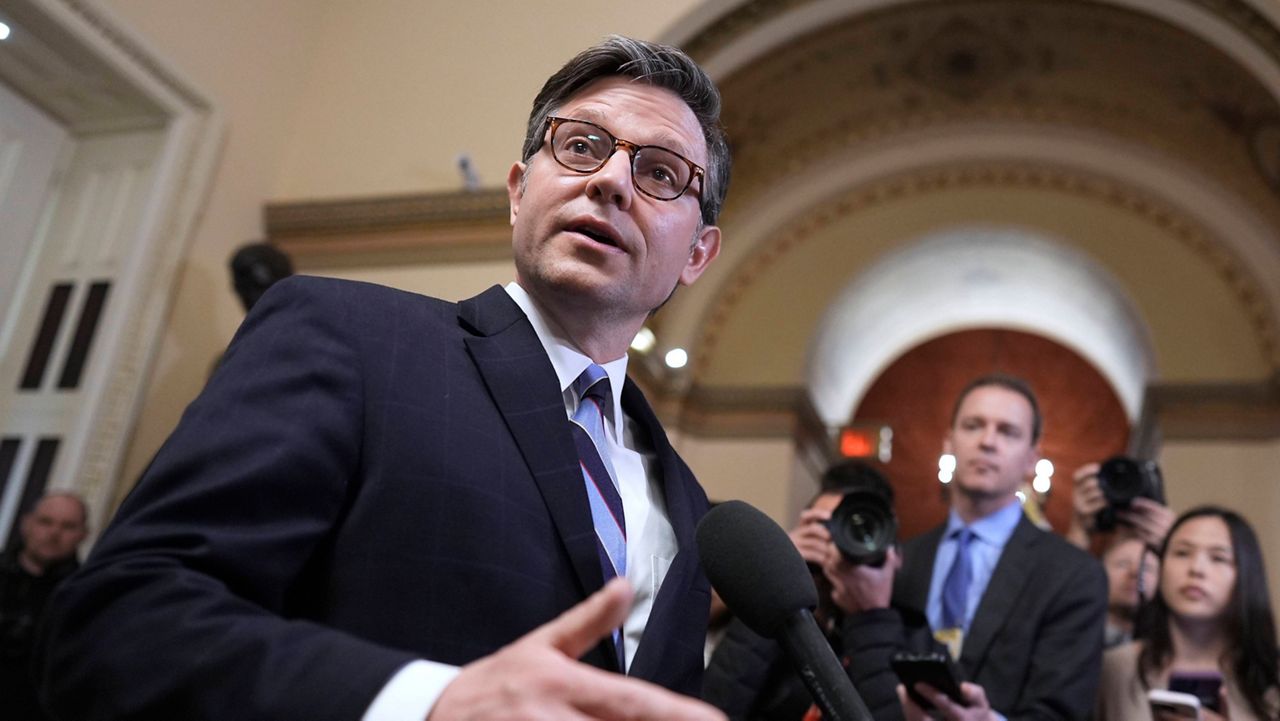The Biden administration is calling on Congress to approve $47 billion in emergency funding to provide further support to Ukraine in its war against Russia, fight the COVID-19 and monkeypox outbreaks, and respond to previous and future natural disasters.
What You Need To Know
- The Biden administration is calling on Congress to approve $47 billion in emergency funding to provide further support to Ukraine in its war against Russia, fight the COVID-19 and monkeypox outbreaks, and respond to previous and future natural disasters
- With a new fiscal year beginning in less than a month, the chances of lawmakers passing a full-year government funding bill are growing dimmer by the day
- The administration is urging lawmakers to consider the additional emergency spending alongside a short-term funding bill
- While Republicans, who regularly criticize federal spending under President Joe Biden, are likely to object to at least some of the proposals, the administration official said the money is needed to meet urgent issues and that such requests have received bipartisan support in the past
With a new fiscal year beginning in less than a month, the chances of lawmakers passing a full-year government funding bill are growing dimmer by the day, meaning they’ll likely have to approve a short-term bill to keep the government running as they work toward a longer-term package. The Biden administration is urging them to consider the additional emergency spending alongside a short-term bill.
The administration is requesting an additional $13.7 billion in Ukraine aid. That includes $7.2 billion for military support and to replenish Defense Department stocks and $4.5 billion to support Ukraine government operations.
“We’ve rallied the world to support the people of Ukraine as they defend their democracy, and we simply cannot allow that support for Ukraine to run dry,” an administration official told reporters Friday.
The Ukraine part of the request also includes $2 billion to help offset the impact of decreased Russian energy supplies that could raise prices for Americans, including for uranium to fuel nuclear power plants.
The U.S. government has committed more than $13.5 billion in security assistance to Ukraine since January 2021. About three-quarters of the funding previously approved by Congress for direct military and budgetary support for Ukraine has been spent or is committed, and even more is expected to be used before the end of the month, the official said.
The Biden administration also is renewing its request for $22.4 billion in emergency COVID-19 funding. It says the money is needed to accelerate research and development of next-generation vaccines and therapeutics to keep up with the ever-evolving virus and to support the global response.
The White House made a similar request earlier this year, warning that if Congress failed to approve the funding, it would hurt the federal government’s efforts to support vaccine development, threaten free vaccines, treatments and tests for Americans, and hinder global vaccination efforts.
Driven by Republican opposition, Congress failed to approve the funding.
The Biden administration has kept some programs running by reallocating money, but for example, it announced this week it is pausing delivery of free at-home tests because of a lack of funding.
“Without additional funding, we will have to make even more difficult decisions,” the administration official said.
The official stressed that all the funding from the $1.9 trillion American Rescue Plan, passed in March 2021, has been or is being spent or is planned for specific purposes.
Meanwhile, the U.S. is fighting another concerning virus — monkeypox. The administration is seeking $4.5 billion to mitigate the outbreak, including for vaccines, medication, testing, and research and development of vaccines and rapid tests.
The Biden administration has vastly increased testing capacity and expanded access to therapeutics for monkeypox, which has infected more than 19,000 Americans and killed one person in Texas. It also has stretched out limited vaccine supplies by urging jurisdictions to administer the shots intradermally — into the topmost layer of skin — rather than subcutaneously — into the fatty tissue below. The new method allows for one-fifth the amount of vaccine to be used per shot while providing the same immune response, health officials say.
“We simply cannot let up until we end the current outbreak and are prepared for future monkeypox or smallpox outbreaks,” the administration official said.
The administration also wants $6.5 billion to help states, tribes and territories recover from extreme weather events and natural disasters. The funding would help Americans affected by future events as well as those still struggling from past disasters in Kentucky, California, Louisiana and Texas.
The request includes $150 billion to improve the resiliency of electric grids.
While Republicans, who regularly criticize federal spending under President Joe Biden, are likely to object to at least some of the proposals, the administration official said the money is needed to meet urgent issues and that such requests have received bipartisan support in the past.
“We fully expect Congress to work with us to reach a good resolution,” the official said.
The offices of Senate Majority Leader Chuck Schumer, Senate Minority Leader Mitch McConnell, House Speaker Nancy Pelosi and House Minority Leader Kevin McCarthy did not immediately respond to emails seeking comment on the proposals Friday.








